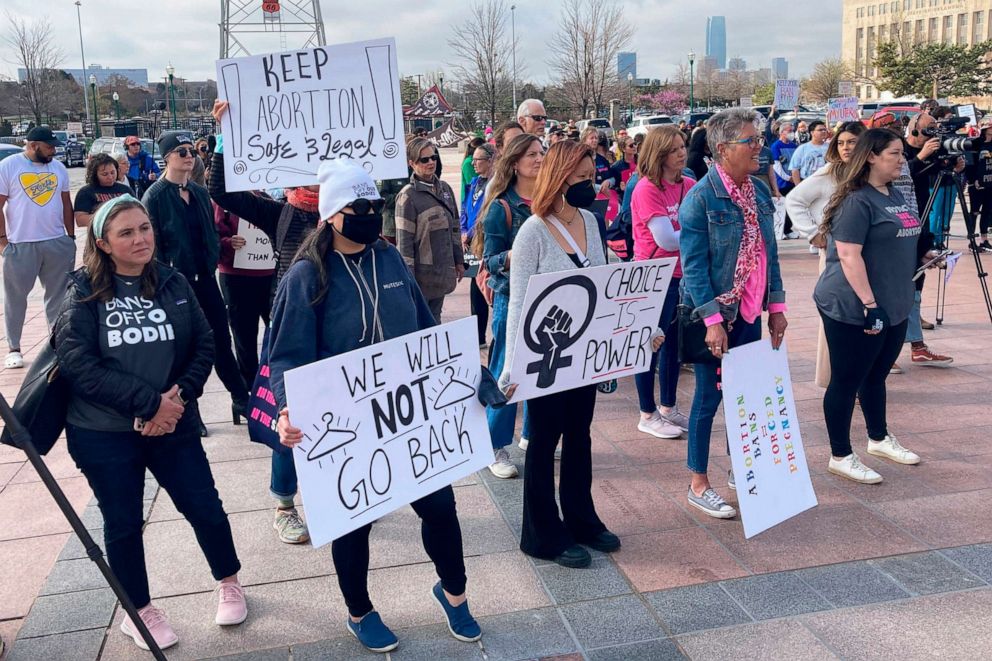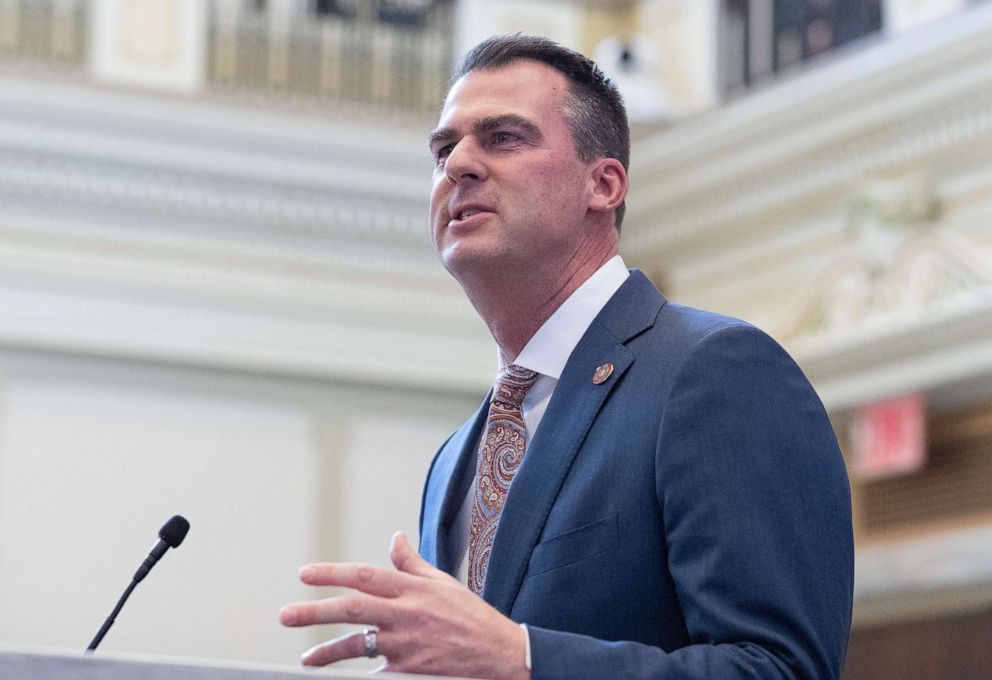Oklahoma passes bill that would make it a felony to perform abortions
Medical providers would pay a $100,000 fine and face up to 10 years in prison.
Oklahoma passed a bill Tuesday that would make performing an abortion a felony, punishable by up to several years in prison.
The bill was passed in the state House 70-14 without a single Democratic vote and without any debate after passing the Senate last year. Just one Republican state representative voted against the bill.
It is now heading to the desk of Gov. Kevin Stitt, a Republican, who is expected to sign it into law.
Under the bill, any medical provider who performs an abortion would face a fine of $100,000 and up to 10 years in prison. The only exceptions for performing an abortion would be if the mother's life is in danger.

State Rep. Jim Olsen told ABC News that penalties would only be imposed on medical professionals who perform abortions, not on women who receive them.
He said the importance of passing the bill is "to protect the lives of innocent unborn babies ... abortion has been a tragic and horrific of life since Roe v. Wade and so it's time to stop taking innocent unborn lives and to recognize the baby has a right to life."
Passage of the bill occurred the same day a "Bans Off Oklahoma" rally was held at the state Capitol in support of abortion rights.
"The goal is not to just ban abortions, but to stigmatize, shame and scare people who need abortion care," Emily Wales, interim president and CEO of Planned Parenthood Great Plains -- which organized the rally -- told ABC News. "They want to create as many restrictions to eliminate abortions, and it's criminal because this sends a message that the penalties will be extreme."
In the past few years, anti-abortion bills have passed in Oklahoma Legislature, only to be overturned by the courts who deem them unconstitutional. Other measures are still moving through the Legislature.
It's unclear whether this bill will be struck down if challenged, but it comes on the heels of several Republican-led states passing legislation ahead of a Supreme Court decision in June that will decide the future of Roe v. Wade.
The court will review a 15-week ban in Mississippi and decide whether or not it is constitutional.
"My hope is that the court will recognize that abortion is not the jurisdiction of the federal government and that will be returned to the states," Olsen said.
In preparation for Roe to be overturned, or gutted, Arizona and Kentucky moved forward on 15-week abortion bans last week.
The Arizona legislation, which was signed by Gov. Doug Ducey, only includes exemptions for medical emergencies when continuing with the pregnancy would "create serious risk of substantial and irreversible impairment of a major bodily function" for the mother.
Meanwhile, in Kentucky, the ban passed along with other anti-abortion measures including making it illegal to send drugs for medical abortions through the mail and requiring the names of physicians who provide medication abortions to be published online.

Additionally, last month, Idaho became the first state to pass and sign legislation modeled after the recent law passed in Texas that bans abortions after six weeks.
Since the law in Texas went into effect in September 2021, thousands of women have flocked to Oklahoma to receive the procedure.
A recent study from the Texas Policy Evaluation Project at the University of Texas Austin found that of the 1,500 women that traveled out of state every month to receive abortion since September, 45% visited Oklahoma.
"If abortion is outlawed, women won't stop seeking abortions, but they will travel to other states where they can still get access to care," Wales said. "And, if they don't have that option, they will either attempt to terminate without any medical assistance or be forced to carry to term."




